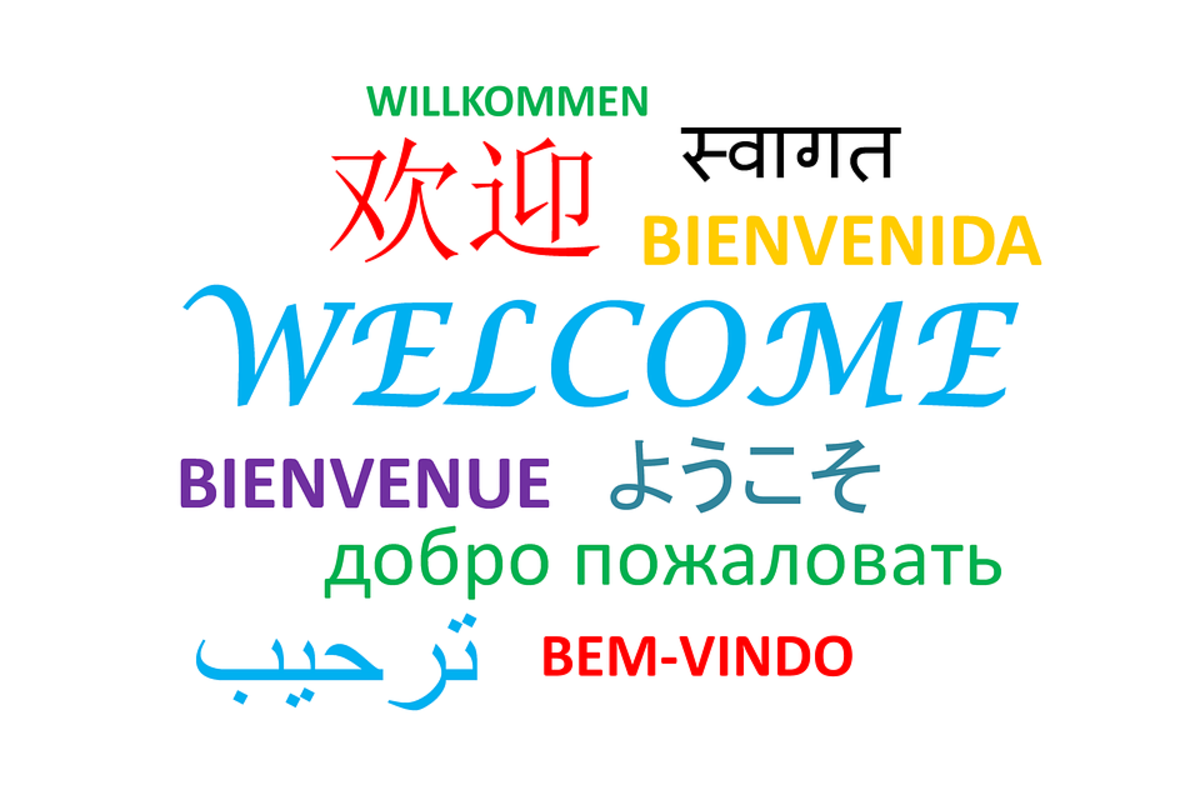10 Reasons Why You Should Learn a Foreign Language
A Quick Intro
The reasons for learning a foreign language are endless. Not only can it enhance intellectual abilities but it can also lead to long-lasting friendships and unique travel experiences. Below are just 10 of the many reasons to learn a foreign language.



1.) You Will Open the Door for Many New Opportunities and Experiences
- First and foremost, you will open up a world of new opportunities within your own country! I cannot begin to explain the number of opportunities that were presented to me once I had begun learning Spanish. I can confidently say that I have gained unique experiences almost on a daily basis just from learning this language that I would have otherwise never been presented with.
- On top of this, you will gain a crucial skill that will provide for unique travel opportunities. Not only will you be able to venture to a new set of countries with a feeling of comfort and confidence, but you will also be able to converse and learn from natives (hands down the best source of information when travelling!).You will also have the possibility to study abroad in more places! Studying abroad has been one of the best experiences of my life! It truly opened my eyes to another culture and really helped increase my language speaking abilities!
- Lastly, although English is the most widely spoken language throughout the world (Mandarin Chinese is the most spoken number-wise but not most widely spoken), you may still encounter times, both domestically and abroad, when another language will come in handy. For example, when traveling in Italy I did not know Italian, and many Italians did not know English. However, I was able to get by speaking Spanish with them as they had a general understanding of it (Spanish is pretty close to Italian as far as languages go).

2.) You Will Become More Cultured
- Learning a foreign language leads to a greater appreciation for both other cultures and your own culture as well. You will be able to take advantage of traveling experiences and gain much more from them, but also you will broaden your global understanding. When you learn another language you also learn about that culture; this will allow you to analyze, criticize and learn from this unique culture and at the same time turn around and analyze, criticize and learn further from your own respective culture.
Even Vocabulary Will Be Strengthened!
The longer I have studied Spanish, the more I have learned about English. Even with vocabulary! Although I am much better in English, there will be times in which I learn a word in Spanish that I did not previously know in English!
3.) You Will Learn More About Your Own Language
- Learning a new language will give you insights regarding your own native language. Going over things like grammar will help better your overall grammatical skills, sentence structure, etc.The constant translations going on inside of your head will help you understand word placement and other related areas, and the writing/reading in this new language will help increase your own native language writing/reading.
- Ever heard of the subjunctive tense? Possibly not, as it is not frequently used in English. However, it is used a lot in many other languages to express cases of doubt and what-scenarios. In English it is used occasionally, but not often. For example, "If I were you, I would do that". Why do we say "were" instead of "was" here? Because "were" expresses a what-if scenario in which the speaker is declaring what he/she would do if he/she "were" that person in that case.
4.) You Will Increase Multitasking Abilities
- Not a good multi-tasker? Have you ever heard someone who is fluent in more than one language speak with someone else who is also fluent in these languages? The amount of times they switch back and forth between languages is incredible! Learning a foreign language will increase your multi-tasking abilities as you will be better at switching between different structures.
5.) You Will Become More Marketable
- When applying for college or a graduate school the knowledge of a foreign language will look impressive and make you more appealing. It demonstrates great discipline and represents a well-rounded student.
- A foreign language looks very nice on a job resume. Many times those candidates with foreign language skills will have their resumes moved right to the top of the pile. Furthermore, when comparing very similar candidates with very similar resumes, the one with foreign language skills is more likely to be chosen! Knowledge of a foreign language will give you and your future employer great ability for increased customer service and appreciation, as well as further broaden your business prospects both domestically and internationally.

6.) You Will Be Introduced to a New World of Music, Literature, Cinema, Art and Food.
- To me this is the most interesting aspect of learning a new language; it also happens to be one of the best ways to learn a new language! You will be immersed into a new world of culture! Think about all of the art, music, cinema, books, etc. that we have in English! You will be introduced to an endless supply of information and entertainment that was previously unknown!
- All of these things can be used to learn a new language as well. For example, I read books, listen to music, watch television and movies, study artwork, etc. all in Spanish. My Spanish skills would be far worse without these things; they are a vital piece in the learning curve and interesting to say the least.
- Do not get me started about the food! Food from other cultures always tastes so good!!


7.) You Will Develop A Completely New Perspective
- Have you ever disagreed with a foreigner over a subject (possibly political, social, or anything else)? Besides differences in personalities, it could well be that you were raised in completely different cultures with different standards, teachings, and general consensuses.
- Learning another language and being exposed to their culture can give you completely new perspectives on issues or opinions you may have thought you would never change! Furthermore, being immersed in a culture, whether physically or mentally, can change your method of thinking.
- It is also worth mentioning that different languages have different grammatical structures and sayings. Thinking and communicating in this new language can give you greater ability to express yourself and understand others.

8.) You Will Build Life-Long Friendships that Otherwise Would Not Have Been Possible
- Knowledge of another language will create life-long friendships in many different ways. On one hand you will meet others who speak your own native language trying to learn this new language. The respect you will give each other for trying this daunting task will set a great foundation for a friendship, which will be further strengthened as you work together to accomplish your difficult tasks!
- On the other hand, you will meet and converse with many native speakers of the language you are trying to learn. This would not happen if you were not learning this language as you could not have previously conversed with them!
9.) You Will Become More Respected
- The ability to speak another language is a sought after skill. It makes one seem smarter, more cultured, and in the end can prove to be the envy of many others. Possessing the ability to do so will cause others from your own country and culture to respect you. You will also, as you will begin to notice, gain respect from international people you come into contact with as it demonstrates your appreciation for other cultures besides your own.

10.) Learning Another Language Increases Brain Capacity and Memory
- Not only do you look smarter, you will be smarter! Learning a new language increases intellectual ability: fact. Brain performance and cognitive abilities are strengthened by learning a foreign language. The brain has actually been proven to alter grey matter (the part responsible for processing information) by learning foreign languages.
- Also, those who are bilingual have a greater response to mental diseases such as Alzheimer's disease and dimentia. Bilingual people who are unfortunate enough to be diagnosed with this disease almost always experience its effects at a later age, and also keep their mental awareness in tact for a longer period of time








